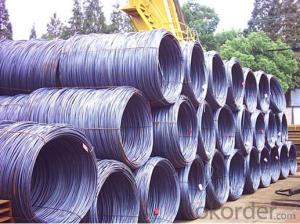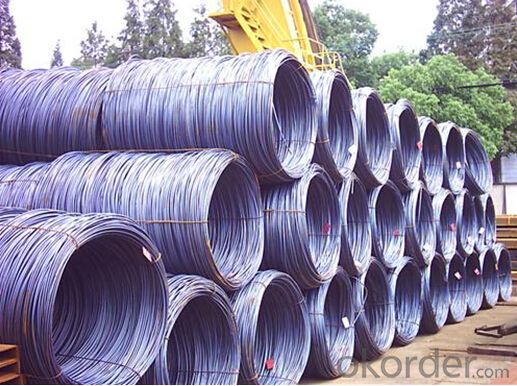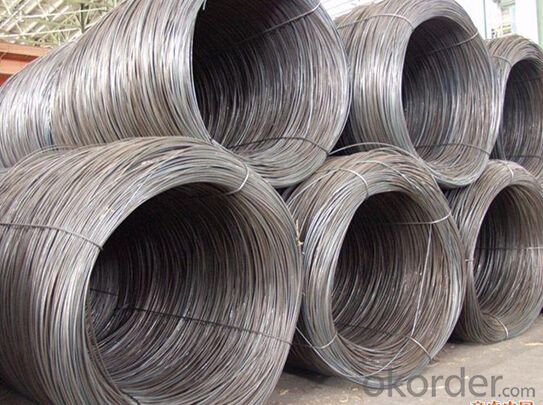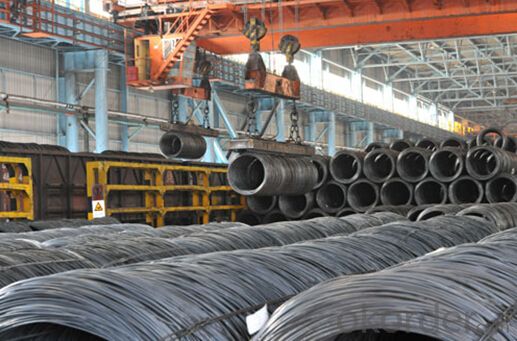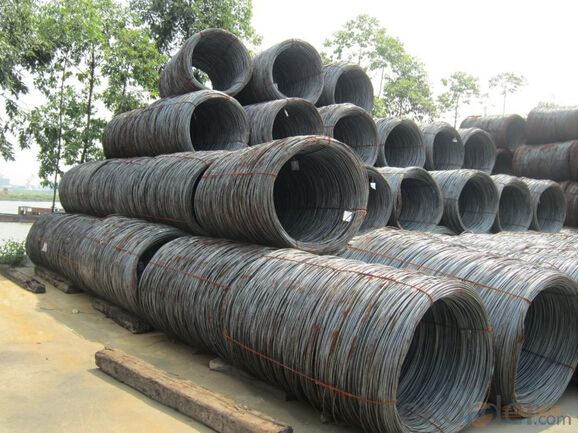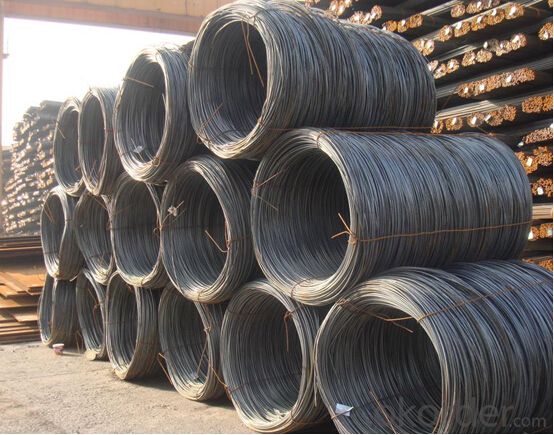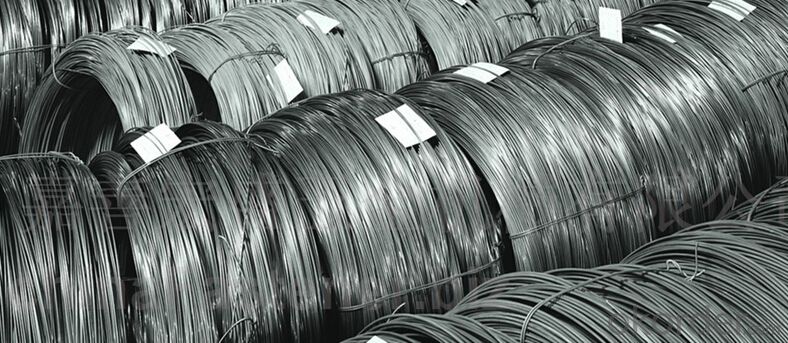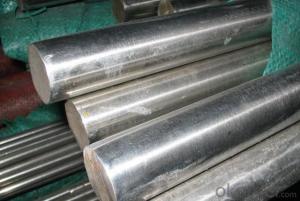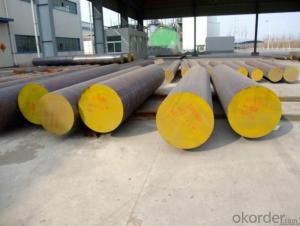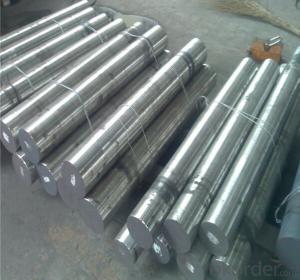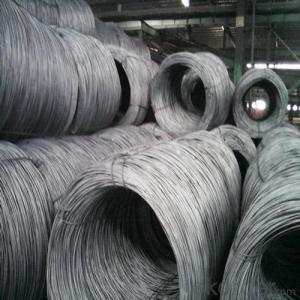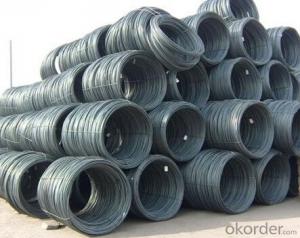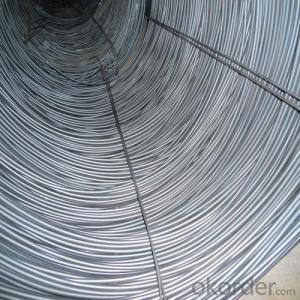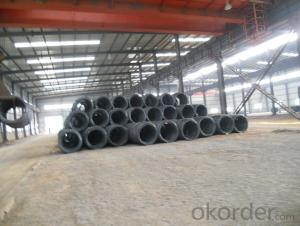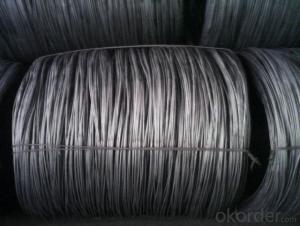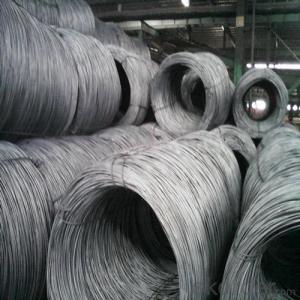SS400 SAE1008 SAE1006 Hot Rolled Wire Rods SAE1018 Q235 Q195
- Loading Port:
- Tianjin
- Payment Terms:
- TT OR LC
- Min Order Qty:
- 3 m.t.
- Supply Capability:
- 10000 m.t./month
OKorder Service Pledge
Quality Product, Order Online Tracking, Timely Delivery
OKorder Financial Service
Credit Rating, Credit Services, Credit Purchasing
You Might Also Like
Specification
Type:
Carbon Steel,Spring Steel,Bearing Steel,Gear Steel,Deformed Steel,Stainless Steel,Alloy Steel
Shape:
Steel Coil,Steel Sheet,Steel Wire Rod,Steel Flat Bar,Steel Square Bar,Steel Angle,Steel Round Bar,Steel Billets
Technique:
Hot Rolled,Cold Rolled,Cold Drawn,ERW,Forged,Saw,Extruded,EFW,Spring
Surface Treatment:
Galvanized,Coated,Copper Coated,Color Coated,Oiled,Dry,Chromed Passivation,Polished,Bright,Black,PVDF Coated
Certification:
ISO,SGS,BV,IBR,RoHS,CE,API,BSI,UL
Thickness:
5.5-42mm
Width:
5.5-42mm
Length:
In coils
Outer Diameter:
5.5-42mm
Net Weight:
2m.t.
Packaging:
Seaworthy packaging
SS400 SAE1008 SAE1006 Hot Rolled Wire Rods SAE1018 Q235 Q195
Detailed Information of the SS400 SAE1008 SAE1006 Hot Rolled Wire Rods SAE1018 Q235 Q195
| Name | Hot Rolled High Carbon Wire Rod |
| Shape | Round Bar/Square Bar/Flat Bar/Plate/Wire |
| Standard | GB/ASTM/SAE/AISI/DIN/JIS/EN/BS |
| Surface Treatment: | Black/Peeling/Polished/Machined |
| Delivery Condition: | Hot Rolled or Forged/Peeled or Black Surface |
| Test | SGS/UT 100% Elements Testing |
| Certificate: | ISO/Mill Certificate |
| Service: | 24 hours online service / |
| more than 20 years trading and manufacture | |
| Quality Assurance: | the third party inspection, such as SGS, BV, TUV…etc. is acceptable |
| Packaging Details: | Seaworthy Packaging or as per customer's packing instruction |
Chemical Composition of the SS400 SAE1008 SAE1006 Hot Rolled Wire Rods SAE1018 Q235 Q195
| Grade | Chemical Composition(%) | |||||
| C | Mn | Si | S | P | B | |
| SAE1008 | 0.1max. | 0.3~0.50 | 0.15max | 0.050max | ≤0.040 | >0.0008 |
| Mechanical properties | ||||||
| Yield strength(N/mm2) | Tensile strength(N/mm2) | Elongation(%) | ||||
| 250-280 | 350-380 | ≥32 | ||||
Company Introduction the SS400 SAE1008 SAE1006 Hot Rolled Wire Rods SAE1018 Q235 Q195
CNBM International Corporation is the most import and export platform of CNBM group(China National Building Material Group Corporation) ,which is a state-owned enterprise, ranked in 270th of Fortune Global 500 in 2015.
With its advantages, CNBM International are mainly concentrate on Cement, Glass, Iron and Steel, Ceramics industries and devotes herself for supplying high quality series of refractories as well as technical consultancies and logistics solution.
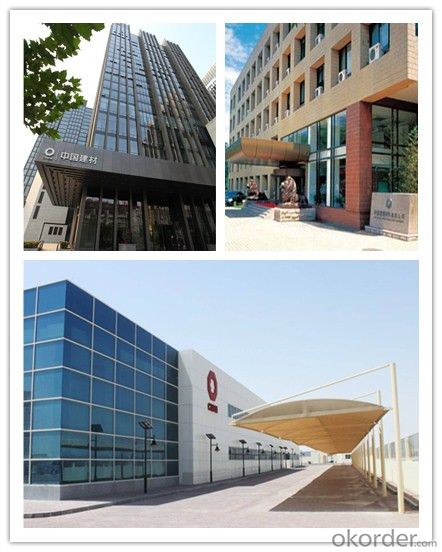
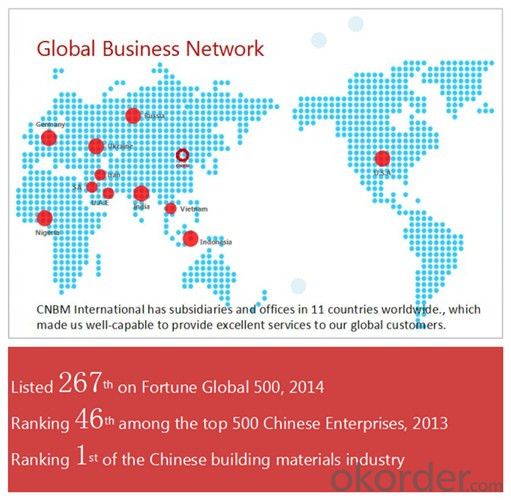
| After-sale service | CNBM provides the services and support you need for every step of our cooperation. We’re the business partners you can trust; you can relax and get on with doing business. |
| For any problem, please kindly contact us at any your convenient time, we’ll reply you in our first priority within 24 hours | |
| Advantages | Industry experience over 20 years. |
| Shipment of goods -More than 70 countries worldwide. | |
| The most convenient transport and prompt delivery. | |
| Competitive price with best service. | |
| High technical production line with top quality products. | |
| High reputation based on best quality products. |
Packaging & Delivery the SS400 SAE1008 SAE1006 Hot Rolled Wire Rods SAE1018 Q235 Q195
| Packaging Detail | Sea worthy packing /as per customer's packing instruction |
| Delivery Detail | 15 ~ 40 days after receiving the deposit |
Products Show
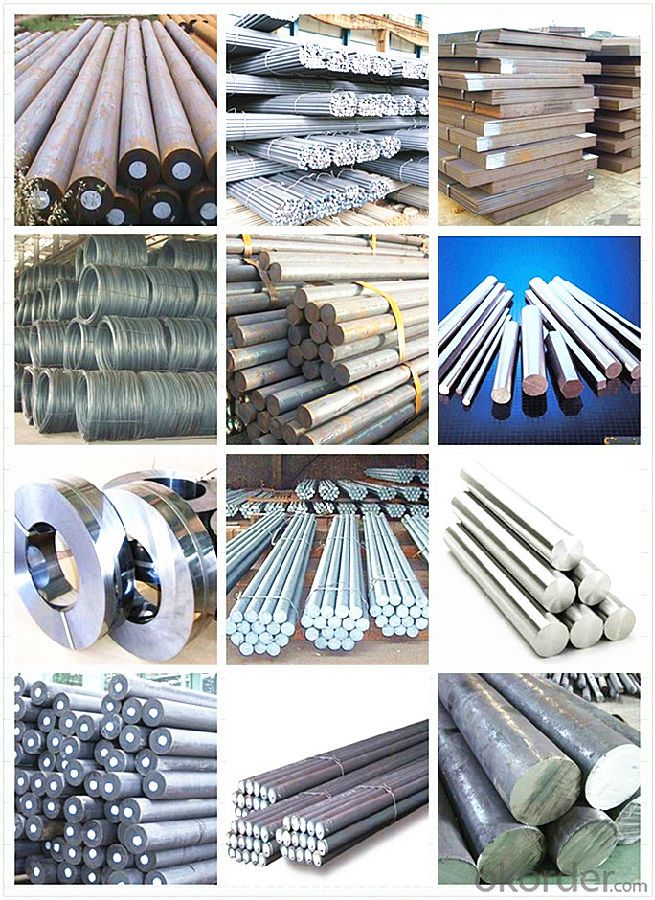
FAQ:
| Are you a trader or manufacturer? | Manufacturer |
| What’s the MOQ? | 3 metric ton |
| What’s your delivery time? | 15-35 days after downpayment received |
| Do you Accept OEM service? | Yes |
| what’s your delivery terms? | FOB/CFR/CIF |
| What's the Payment Terms? | 30% as deposit,70% before shipment by T/T |
| Western Union acceptable for small amount. | |
| L/C acceptable for large amount. | |
| Scrow ,Paybal,Alipay are also ok | |
| Why choose us? | Chose happens because of quality, then price, We can give you both. |
| Additionally, we can also offer professional products inquiry, products knowledge train (for agents), smooth goods delivery, excellent customer solution proposals. | |
| What's your available port of Shipment? | Main Port, China |
| What’s your featured services? | Our service formula: good quality+ good price+ good service=customer's trust |
| Where are your Market? | Covering more than 160 countries in the world |
- Q: What is the role of special steel in the defense industry?
- Special steel plays a critical role in the defense industry due to its unique properties and capabilities. One of the primary functions of special steel in defense is to provide strength and durability to various components and structures of military equipment, such as tanks, armored vehicles, naval vessels, and aircraft. These steels are designed to withstand extreme conditions, including high impact and ballistic resistance, making them essential for ensuring the safety and protection of military personnel. Another significant role of special steel in the defense industry is its contribution to the production of cutting-edge weaponry. Special steel alloys are used to manufacture firearms, missiles, and artillery systems, providing the necessary strength, hardness, and corrosion resistance required for such applications. These steels allow for the precise manufacturing of complex weapon systems, ultimately enhancing their performance, accuracy, and reliability. Moreover, special steel also plays a vital role in the defense industry by enabling the development of advanced communication and electronics technologies. Steel alloys with specific magnetic properties are utilized in the production of radar systems, satellite components, and other electronic devices critical for military surveillance, intelligence, and communication purposes. These steels enable the efficient transmission and reception of signals, enhancing the overall capabilities of defense systems. In summary, special steel is indispensable in the defense industry due to its strength, durability, and unique properties. It provides the necessary foundation for the construction of military equipment, enhances the performance of weapons, and enables the development of advanced communication and electronics technologies. By utilizing special steel, the defense industry can ensure the safety, effectiveness, and technological superiority of military operations.
- Q: What are the limitations of using special steel?
- Some limitations of using special steel include its high cost compared to regular steel, limited availability due to specific alloy compositions, and the need for specialized knowledge and equipment to work with it. Additionally, special steel may have lower ductility and toughness compared to other materials, making it less suitable for certain applications that require high impact resistance or flexibility.
- Q: How does special steel contribute to the automotive engine industry?
- Special steel plays a crucial role in the automotive engine industry by offering enhanced performance, durability, and efficiency. It is used to manufacture various engine components such as crankshafts, camshafts, connecting rods, and valves, which are subjected to high stress and temperature. The use of special steel ensures these components can withstand the demanding conditions and provide better power, fuel efficiency, and overall engine performance. Additionally, special steel enables engine manufacturers to reduce weight while maintaining structural integrity, contributing to improved fuel economy and reduced emissions.
- Q: How are cobalt-based alloys used in dental applications?
- Cobalt-based alloys are commonly used in dental applications due to their high strength, corrosion resistance, and biocompatibility. These alloys are used in dental prosthetics, such as crowns, bridges, and dentures, to provide durability and stability. Additionally, cobalt-based alloys are often used in orthodontic appliances, implants, and surgical instruments due to their excellent mechanical properties and resistance to wear and deformation.
- Q: What are the different surface treatments for special steel?
- For special steel, there exist various surface treatments that serve distinct purposes and offer unique benefits. Some commonly employed surface treatments include: 1. Galvanization, which entails coating the steel with a layer of zinc, providing exceptional corrosion resistance. Galvanization proves popular for outdoor applications exposed to moisture and harsh environmental conditions. 2. Powder coating, involving the application of a dry powder to the steel surface, which is then heated and cured to form a durable and protective coating. This treatment offers excellent resistance against corrosion, chemicals, and UV rays, making it ideal for automotive parts, appliances, and outdoor furniture. 3. Nitriding, a surface hardening treatment that diffuses nitrogen into the steel surface. Nitriding significantly enhances surface hardness, wear resistance, and fatigue strength. It finds common use in high-performance components like gears, crankshafts, and injection molding screws. 4. Electroplating, where a layer of metal such as chromium, nickel, or gold is deposited onto the steel surface through an electrochemical process. This treatment improves appearance, corrosion resistance, and wear resistance. Electroplating is often employed for decorative purposes or to enhance component performance in various industries. 5. Passivation, a chemical treatment that eliminates iron contaminants from the steel surface, creating a passive oxide layer. This layer acts as a barrier against corrosion, enhancing resistance to rust and other forms of degradation. Passivation is commonly used for stainless steel components in industries like food processing, pharmaceuticals, and medical devices. 6. Carbonitriding, a surface treatment that introduces carbon and nitrogen into the steel surface at high temperatures. This process forms a hardened case, improving wear resistance and fatigue strength. Carbonitriding finds frequent application in high-stress components such as gears, crankshafts, and camshafts. These examples represent just a fraction of the available surface treatments for special steel. The choice of treatment depends on factors like desired properties, application requirements, and budget constraints. Consulting experts or manufacturers is crucial for determining the most suitable surface treatment for specific steel applications.
- Q: What are the different heat treatment defects in special steel?
- Some common heat treatment defects in special steel include decarburization, quench cracking, distortion, and grain growth. Decarburization occurs when the surface of the steel loses carbon during the heating process, leading to a reduction in hardness and strength. Quench cracking refers to the formation of cracks due to rapid cooling after the steel has been heated. Distortion can occur when uneven heating or cooling causes changes in shape or dimensions of the steel. Finally, grain growth refers to the enlargement of grain size, which can negatively impact the mechanical properties of the steel.
- Q: How does sulfur affect the machinability of special steel?
- Special steel can be affected by sulfur in both positive and negative ways. On one hand, when a small amount of sulfur is added, it acts as a free-machining element. This leads to the formation of sulfide inclusions, which aid in breaking chips during machining. As a result, the surface finish is improved, tool wear is reduced, and cutting speeds are increased. This is particularly advantageous for high-speed machining operations. On the other hand, excessive sulfur content can be detrimental to machinability. When sulfur levels are high, brittle sulfide inclusions are formed, leading to poor machinability and decreased mechanical properties. This can cause increased tool wear, inferior surface finish, and slower cutting speeds. Additionally, sulfur can contribute to the development of built-up edge, further hindering the machinability of special steel. Therefore, maintaining an optimal sulfur content is crucial in order to achieve a balance between improved machinability and the desired mechanical properties. Proper control of sulfur levels in the steel composition, along with the use of appropriate machining techniques and tool selection, is necessary to achieve efficient and high-quality machining of special steel.
- Q: Can special steel be used in the wind turbine manufacturing industry?
- Yes, special steel can be used in the wind turbine manufacturing industry. Special steel, such as high-strength or corrosion-resistant alloys, is often used in the construction of wind turbine components due to its durability, strength, and resistance to harsh environmental conditions. These specialized steel alloys help ensure the longevity and performance of wind turbines in the renewable energy industry.
- Q: How is special steel used in toolmaking?
- Special steel is used in toolmaking because of its exceptional properties such as high hardness, toughness, and wear resistance. It is utilized to manufacture various types of tools including drills, cutting tools, dies, and molds. The superior properties of special steel enable these tools to withstand high temperatures, resist deformation, and maintain sharpness for extended periods. Additionally, special steel can be heat treated to achieve specific characteristics, making it an ideal choice for toolmaking applications.
- Q: How is HSLA steel used in the construction industry?
- HSLA (High-Strength Low-Alloy) steel is commonly used in the construction industry for various applications. It offers increased strength, durability, and better resistance to corrosion compared to conventional carbon steel. HSLA steel is used in the construction of bridges, buildings, pipelines, and other structures where high strength and reliability are required. Additionally, it can be found in structural components like beams, columns, and trusses, as well as in reinforcement bars and plates. Overall, HSLA steel plays a crucial role in enhancing the safety, longevity, and overall performance of construction projects.
Send your message to us
SS400 SAE1008 SAE1006 Hot Rolled Wire Rods SAE1018 Q235 Q195
- Loading Port:
- Tianjin
- Payment Terms:
- TT OR LC
- Min Order Qty:
- 3 m.t.
- Supply Capability:
- 10000 m.t./month
OKorder Service Pledge
Quality Product, Order Online Tracking, Timely Delivery
OKorder Financial Service
Credit Rating, Credit Services, Credit Purchasing
Similar products
Hot products
Hot Searches
Related keywords
